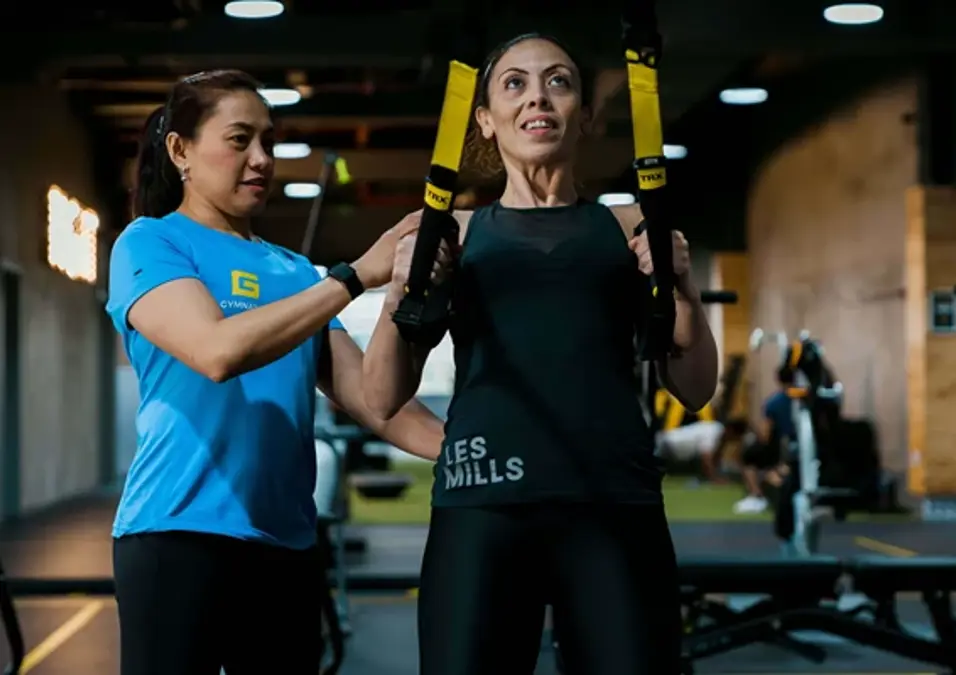How to avoid getting injured when you train

SIGN UP FOR YOUR FREE DAY PASS TODAY!
Some people out there actually have the mindset of ‘injuries are badges of honour’. If you are getting injured you must be training hard - NO. If you are getting injured you are not training smart. With challenges such as the Dubai 30 x 30 where you complete 30 minutes of activity each day for 30 days it’s important you know what you're doing to avoid injury.
Dubai Fitness Challenge are in full swing helping create a fitness-focussed mindset and inspires us all to seek healthy, active lifestyles.
The key to the longevity and effectiveness of your training lies in training hard and regularly with NO injuries. You must be sensible with your training and remember to treat your body well. Your body isn’t something you can just abuse and rag about. You have to treat it with the care and respect it deserves.
There are a number of things you can do to minimise your chances of injury and we are going to show you what you need to do to train smart and injury free!
The importance of Warm ups
Never skin your warmups! If you want to stay on your Dubai fitness challenge you need to make sure you always warm up.
Before every single training session, be it cardio workouts, ball sports like Padel Tennis or weight training it's imperative you complete a warm up. A warm up is there to do exactly that, warm up your muscles. A warm up should compose of some steady state cardio to get your heart rate gently elevated and some stretches. The stretches are there to lengthen your muscles which will increase blood flow and mobility. What’s more, your body temperature will increase during a warm up and your joints will loosen up. That means less stress on joints and tendons. Warm, well-lubricated joints prepare the body to execute sudden and/or explosive movements with ease.
Don’t ego lift - no really...don't
Ahh, everyone knows an ego lifter in the gym. Just ensure this isn't you. Ego lifting involves lifting a weight which is far beyond your capability. With this type of lift comes strains, tears and injuries. Never lift more than you are capable of, it won't do you any favours, all it will do is damage.
Taking a muscle to failure, the point where you can’t do another rep will achieve what you need and this can be done with a safe, lighter weight. If you are not sure how much you should be lifting or you are worried about injuring yourself then speak to a personal trainer in Dubai for some great advice and training tips.
The same principle goes for cardio, don't push yourself to the point where it hurts too much or you don’t feel ok.
Ensure your body is fuelled up
If your blood sugar is low when you hit a workout such as the Dubai 30 x 30 then you run the risk of potentially fainting and this would make it a pretty awful experience. Exercise should be paired with good nutrition.
Don’t think you can hammer your training and push your boundaries if you haven’t got the right fuel in the tank! Your body needs a healthy mix of carbohydrates to fuel your muscles and proteins to heal. Never train on an empty stomach!
A great tip is if you suffer from cramp a lot, eat a banana. it's full of Potassium which will stop those awful cramping feelings.
Don't over train
Overtraining can cause persistent injuries which is definitely something you want to avoid. Over training is one of the main causes of injuries. If you are overtraining, or working out too many times in the week without adequate rest, your body will not be able to recover properly. If you are constantly battering your body, it won’t get a chance to heal those broken muscle fibres properly. This leaves you much more susceptible to injury. There are a number of signs to look out for which may suggest you are over training such as persistent soreness, strains, and pains, overuse injuries and fatigue to name but a few. Overtraining can also lead to lack of interest and motivation.Ensure you get at least 1-2 rest days a week so your body can recover and heal and keep performing at its best.
Cool down at the end of your training session
Cool downs are just as important as your warm up, so always ensure they are including in your exercise plan. a sensible way to end a training session and another way to reduce the risk of injury. Injuries can be detrimental to your training and results. Do everything you can to ensure you don't push your body too far and don’t get injured.
At the end of your training session, just as you warmed up, it’s time to cool down.
A cool down is to:
- Reduce heart and breathing rates
- Gradually cool your body temperature
- Return muscles to their optimal length-tension relationships
- Prevent venous pooling of blood in the lower extremities, which may cause dizziness or possible fainting
- Restore physiologic systems close to where they started.
When you are exercising you want to ensure your session is as effective as possible and your chances of getting injuries are minimised.
GET YOUR FREE TRIAL TODAY














































































